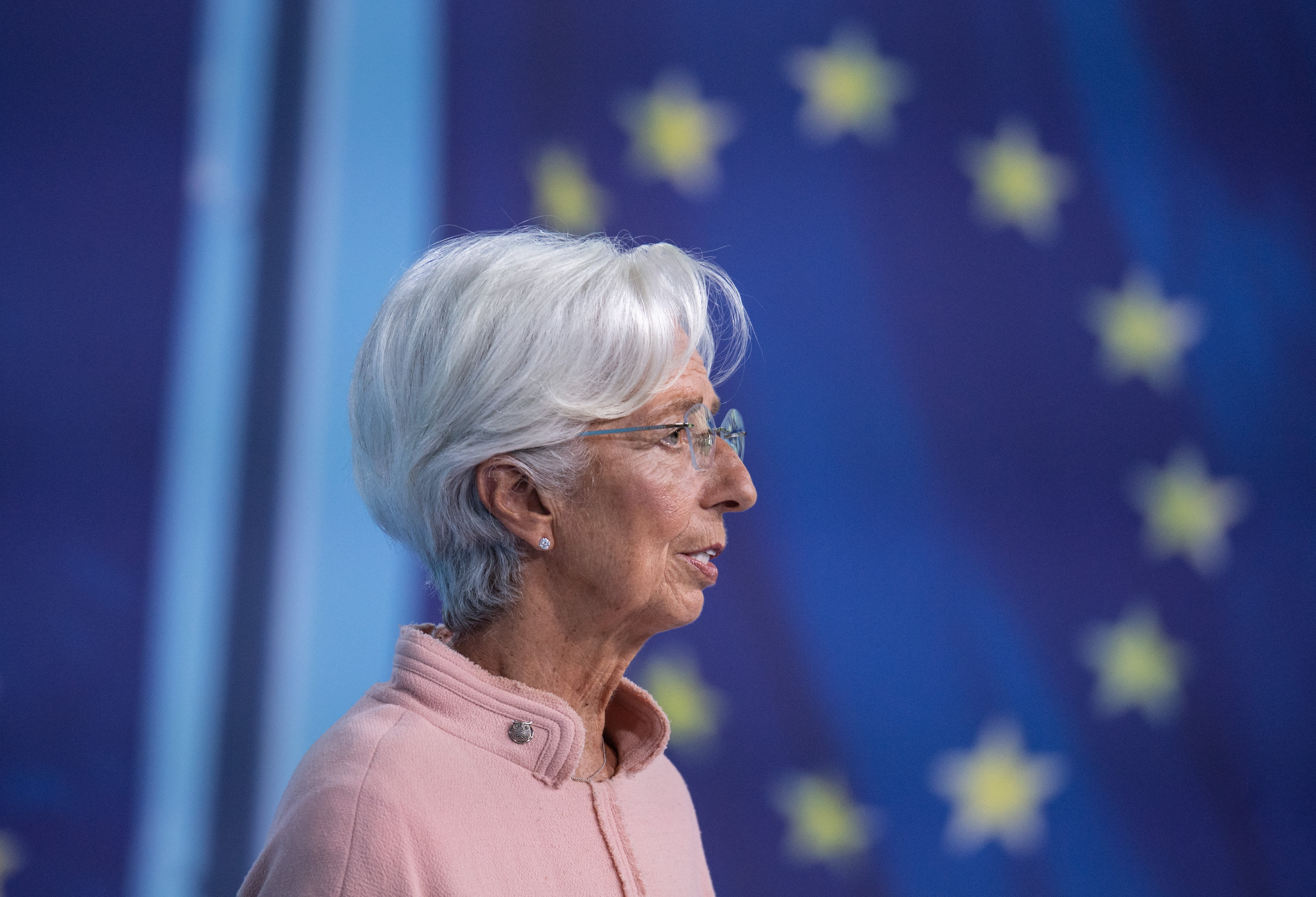
Inflation in the euro area is unlikely to surge to levels seen in the U.S., European Central Bank President Christine Lagarde said on Friday.
The euro zone’s inflation levels have raised questions about the ECB’s monetary policy, with the central bank behind its British and American counterparts when it comes to its normalization path.
Euro zone inflation hit a new record high of 5% in December, largely due to soaring energy prices in Europe.
Speaking via videoconference at the WEF’s Davos Agenda event on Friday, Lagarde defended the ECB’s policy, arguing that Europe did not share the United States’ “state of excessive demand.”
U.S. demand is currently 30% above pre-pandemic levels, she said, whereas the euro area is “just about at pre-pandemic levels.”
“When I look at the labor market we are not experiencing anything like The Great Resignation, and our employment participation numbers are getting very close to the pre-pandemic level,” she added.
“So I think those two factors, if you look at them carefully, are clearly indicating that we’re not moving at the same speed, and we’re unlikely to experience the same kind of inflation increases that the U.S. market has faced.”
Millions of Americans quit their jobs in recent months in pursuit of higher wages and better working conditions. The movement has widely been dubbed “the Great Resignation.”
Core inflation — a measure that removes components that are vulnerable to volatility from the inflation figure — in the U.S. is at 5.5%, Largarde added, compared to 2.6% in the euro area.
“We have a forward guidance which is pretty solid,” Lagarde said. “And we will act — there’s no question in my mind that once the criteria are satisfied we will. But at the moment they’re not satisfied.”
‘Prices will stabilize’
Lagarde argued that Europeans had been “victims of our own success,” noting that advanced economies had seen a “staggering” demand recovery that had outpaced supply. Challenges like a lack of truck drivers and backlogged ports had not helped to ease the situation, she said.
However, with wage negotiations “not being way up yet,” Lagarde said the ECB was not seeing a sustainable movement in prices that could lead to inflation “spiraling out of control.”
“On the contrary, we assume for the moment that energy prices will stabilize in the course of 2022, and that bottlenecks will also stabilize, and gradually those inflation numbers will decline,” she told the panel.
But Lagarde noted that the ECB’s inflation outlook was subject to change.
“Once we have completed our net asset purchases, we will look at other tools in the toolbox — including interest rate hikes,” she said.
Last month, the ECB said it would be cutting its monthly asset purchases, but pledged to continue its unprecedented monetary policy support into 2022.




